19 November
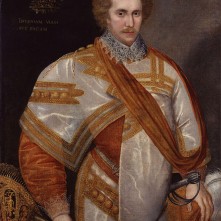
Robert Sidney
1563 - Robert Sidney, 1st Earl of Leicester, courtier, patron of the arts and poet, was born at Penshurst in Kent. Sidney was the second son of Sir Henry Sidney and his wife, Mary (née Dudley), daughter of John Dudley, Duke of Northumberland. It was discovered that Robert was a poet, like his more famous brother Philip, when his notebook came to light in the library of Warwick Castle in the 1960s. The notebook contained a collection of over sixty sonnets, pastorals, songs and shorter pieces written in the 1590s.
1564 – Death of Lord John Grey, youngest son of Thomas Grey, 2nd Marquis of Dorset and courtier. Grey was arrested with his brothers, Thomas and Henry (Duke of Suffolk and father of Lady Jane Grey), in 1554 for their involvement in Wyatt's Rebellion. Thomas and Henry were executed, and although John was condemned to death, he was released and pardoned due to the intercession of his wife, Mary, sister of Anthony Browne, Viscount Montagu.
1566 – Death of Reynold Corbet, member of Parliament and judge. He was buried at Stoke upon Tern in Shropshire. Corbet's offices included recorder of Shrewsbury, Justice of the Peace for Shropshire, a member of the Council in the Marches and Puisne Justice of the Queen's Bench.
1584 – Death of William Bendlowes, member of Parliament, Serjeant-at-Law and Law Reporter. He was buried at Great Bardfield in Essex, where his monumental brass can still be seen today. Bendlowes reported on court cases from the period 1534-1579.
1587 – Death of Henry Vaux, poet, Catholic recusant and priest harbourer, of consumption at Great Ashby, the home of his sister, Eleanor Brooksby. Vaux was sent to Marshalsea prison after being arrested in November 1586 for offering accommodation and assistance to Catholic priests. He was released in May 1587 due to ill health.
1590 – Death of Thomas Godwin, physician and Bishop of Bath and Wells, at Wokingham in Berkshire, his birthplace. He had retired there due to ill health, and was buried in the local church. Elizabeth I chose Godwin as one of her Lent preachers, and he served in that post for eighteen years.
1604 – Death of Richard Edes, Dean of Worcester, royal chaplain and court preacher, at Worcester. He was buried in Worcester Cathedral. Edes was a royal chaplain to Elizabeth I and James I, and had just been appointed to work on a new version of the English Bible when he died.
20 November
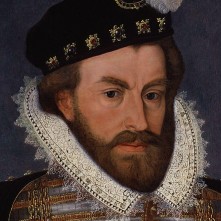
Christopher Hatton
1515 – Birth of Mary of Guise (Marie de Guise), Queen of Scots, consort of James V, regent of Scotland and mother of Mary, Queen of Scots, at the castle of Bar-le-Duc in Lorraine. She was the eldest daughter of Claude of Lorraine, Duke of Guise, and Antoinette de Bourbon, daughter of Francis, Count of Vendome, and Marie de Luxembourg. Mary was Queen Consort of Scotland from 1538-1542, and regent from 1554 until her death in 1560.
1518 – Death of Sir Marmaduke Constable, soldier and administrator. He served in France with Edward IV and Henry VII, and although he fought on the side of Richard III at the Battle of Bosworth, he managed to gain Henry's trust. He commanded the left wing of the forces under Thomas Howard, Earl of Surrey, at the 1513 Battle of Flodden, and this service led to him receiving a letter of thanks from King Henry VIII.
1556 – Death of Sir John Godsalve, member of Parliament, landowner and administrator, at Norwich. He was buried in St Stephen's Church, Norwich, in the Lady Chapel. Godsalve's offices included Constable of Norwich Castle, Keeper of the Gaol there, commissioner for chantries in Norfolk and Suffolk, Justice of the Peace for Norfolk and Comptroller of the Tower of London Mint.
1558 – Death of Maurice Griffin, Bishop of Rochester, probably at the Bishop's Palace in Southwark. He was buried at the church of St Magnus the Martyr, London Bridge. Griffin was Welsh and he left provision in his will for the setting up of Friars School in Bangor, with the support of William Glyn, Bishop of Bangor, and Jeffrey Glyn.
1591 - Sir Christopher Hatton, Elizabeth I’s Lord Chancellor and favourite, died aged fifty-one. He died at Ely Palace in London. He had been ill for some time and Elizabeth I had visited him on the 11th November. He was given a state funeral on 16th December at the old St Paul’s Cathedral, and a monument was erected at the high altar. The old St Paul’s Cathedral was destroyed in the Great Fire of London in 1666.
1600 – Burial of Robert Wilson, actor and playwright, at St Giles Cripplegate in London. Wilson acted in the companies Leicester's Men and the Queen's Men, and is known for his plays which include “The Three Ladies of London” (1581), “The Three Lords and Three Ladies of London” (1590), “The Cobbler's Prophecy” (1594) and “The Pedlar's Prophecy” (1595). He was also one of Philip Henslowe’s writers, writing plays for the Rose Theatre.
1612 – Death of Sir John Harington, courtier, author and inventor of the flush toilet. He was buried at the family estate of Kelston, near Bath. Click here to find out more about his flush toilet.
21 November
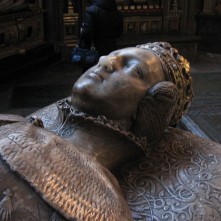
Tomb effigy of Frances Brandon.
1495 – Birth of John Bale, churchman, Protestant playwright, historian and Bishop of Ossory, at Cove, near Dunwich, in Suffolk. Bale wrote twenty-four plays, including “Three Laws of Nature, Moses and Christ, corrupted by the Sodomytes, Pharisees and Papystes most wicked”, “A Tragedye; or enterlude manifesting the chief promyses of God unto Man”, “The Temptacyon of our Lorde”, “A brefe Comedy or Enterlude of Johan Baptystes preachynge in the Wyldernesse, etc” and “ Kynge Johan”. His most famous work is his Illustrium majoris Britanniae scriptorum, hoc est, Angliae, Cambriae, ac Scotiae Summarium... ("A Summary of the Famous Writers of Great Britain, that is, of England, Wales and Scotland"), which was his effort to record every work by a British author.
1558 – Death of James Bassett, courtier and stepson of Arthur Plantagenet, Viscount Lisle. Bassett was a member of Philip of Spain's Privy Chamber and private Secretary to Mary I. He was buried at Blackfriars, London.
1559 - Frances Brandon, Duchess of Suffolk, died at Richmond. She was buried in St Edmund’s Chapel, Westminster Abbey, on the orders of her cousin, Queen Elizabeth I, and her second husband, Adrian Stokes, erected a tomb in her memory. Frances was the eldest daughter of Charles Brandon, Duke of Suffolk, and his third wife Mary Tudor, Queen of France, sister of Henry VIII, and she was the mother of Lady Jane Grey.
1579 – Death of Sir Thomas Gresham, merchant and founder of the Royal Exchange and Gresham College, at Gresham House in Bishopsgate, London. He was buried at St Helen's Church, Bishopsgate.
1613 – Death of Rose Throckmorton (née Lok), businesswoman and Protestant exile, at the age of eighty-six. Rose was the daughter of Sir William Lok, mercer and Gentleman Usher of the Chamber to Henry VIII, and in her memoirs she claimed that her father had been responsible for supplying Queen Anne Boleyn with religious books from the Continent.
22 November
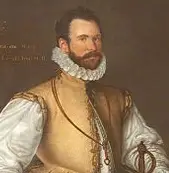
Martin Frobisher
1538 – Burning of John Lambert, Protestant martyr, at Smithfield in London. He was accused of heresy for denying the real presence of Christ in the Eucharist. As he burned at the stake he cried out “None but Christ, none but Christ!”
1545 - Henry VIII's trusted physician, Sir William Butts, died at Fulham Manor, Middlesex, after suffering from a “dooble febre quartanz”, a form of malaria. Butts was buried in a tomb against the south wall of All Saints Church, Fulham, but his tomb and brass were later destroyed. In 1627, his epitaph (a slab with verses by Sir John Cheke) was restored by Leonard Butts of Norfolk.
1559 – Proving of the will of Sir Andrew Dudley, second son of Edmund Dudley and brother of John Dudley, Duke of Northumberland. Dudley served Edward VI as a Gentleman of the Privy Chamber, Joint Keeper of the Palace of Westminster, keeper of the king's jewels and robes, and captain of Guînes. In 1553, he was sentenced to death for helping to put Lady Jane Grey on the throne, but was released in April 1555. His date of death is not known.
1594 – Death of Sir Martin Frobisher, naval commander, privateer and explorer, at Plymouth from gangrene. He had been shot in the thigh during hand-to-hand combat during the Siege of Fort Crozon. His entrails were buried at St Andrews, Plymouth, and his body was taken to London and buried at St Giles Cripplegate. Frobisher is known for the three voyages he made to the New World in search of the Northwest Passage, and his service during the Spanish Armada, for which he was knighted. After the Armada, he became one of Elizabeth I's most trusted officers and commanders. Click here to find out more.
23 November
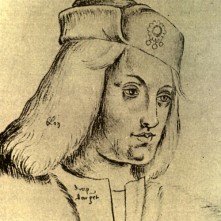
Perkin Warbeck
1499 – The hanging of the pretender Perkin Warbeck at Tyburn. Warbeck had claimed to be one of the Princes in the Tower - Richard of Shrewsbury, Duke of York - and had challenged Henry VII's claim to the throne by raising a rebellion in Cornwall after he was declared Richard IV on Bodmin. The rebellion was squashed and Warbeck was captured and imprisoned.
1503 – Death of Margaret, Duchess of Burgundy (Margaret of York), daughter of Richard, 3rd Duke of York, and sister of Edward IV and Richard III. She died at Mechelen in the Low Countries. Margaret was buried in the house of the Recollects, or the Observant Franciscans.
1558 -The new queen, Elizabeth I, left Hatfield and processed to London.
1583 – Death of Richard Whalley, member of Parliament and administrator, at the age of eighty-four. He was buried at Screveton church in Nottinghamshire. Whalley served Edward Seymour, Protector Somerset, and so was imprisoned after Somerset's fall. He was released after Mary I's accession.
1585 – Death of Thomas Tallis, musician and composer at his home in Greenwich. He was buried in St Alfege's Church, Greenwich, in the chancel. Tallis is known as one of England's greatest early composers, and his works include Gaude gloriosa Dei mater, Puer natus est nobis, Audivi vocem, In pace in idipsum, Videte miraculum, Loquebantur variis linguis and In ieiunio et fletu. Click here to find out more about him.
1598 – Execution of Edward Squire, scrivener and sailor. He was hanged, drawn and quartered at Tyburn for treason after being accused of plotting in Seville to poison Elizabeth I and the Earl of Essex.
24 November
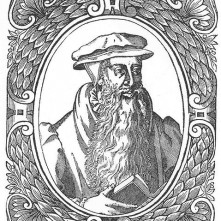
John Knox
1534 – Death of Sir Thomas Wriothesley, herald and father of the Tudor chronicler Charles Wriothesley. It is thought that he was buried at the family church, St Giles Cripplegate, in London.
1542 – The Battle of Solway Moss between England and Scotland. Click here to read more.
1550 – Burial of Sir James Wilford, soldier and commander at Haddington during the War of the Rough Wooing, at St Bartholomew by the Exchange. Bible translator Miles Coverdale preached at the service.
1572 - Scottish clergyman, famous Reformer and founder of Presbyterianism, John Knox, died at his home in Edinburgh as his wife read aloud from Paul’s First Letter to the Corinthians. He was buried in the cemetery of St Giles’ Cathedral, Edinburgh, where he had served as minister. Knox is known for bringing the Protestant reformation to the church in Scotland.
1559 – Death of Thomas Raynold, Dean of Exeter and nominee for the bishopric of Hereford. Mary I's death and the accession of Elizabeth I put a stop to him being consecrated as bishop, and he died in Marshalsea prison after refusing the “Oath of Supremacy”. He was buried in St Margaret's Church, Westminster.
1587 – Death of Sir William Pelham, soldier and Lord Justice of Ireland, shortly after landing at Flushing in the Netherlands with reinforcements. He had been shot in the stomach in August 1586 at Doesburg while shielding Robert Dudley, Earl of Leicester and his commander in chief, and returned to England in April 1587 to take the waters at Bath. He felt well enough to return to the Netherlands in November 1587, but it was too much for him.
1598 – Death of William Paulet, 3rd Marquis of Winchester, nobleman and author, at Basing in Hampshire. He was buried there. Paulet was made a Knight of the Bath at Mary I’s coronation in 1553, and his offices during the reigns of Mary I and Elizabeth included High Sheriff of Hampshire, Commissioner for Musters, Joint Lord Lieutenant of Hampshire, Lord Lieutenant of Dorset and a commissioner at the trial of Mary, Queen of Scots. He was also the author of the 1586 “The Lord Marques Idlenes”, which was dedicated to Elizabeth I, and was described as “containing manifold matters of acceptable advice; as sage sentences, prudent precepts, morall examples, sweete similitudes, proper comparisons, and other remembrances of speciall choice”.
25 November
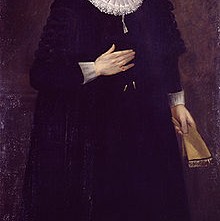
Edward Alleyn
1467 – Birth of Thomas Dacre, 2nd Baron of Gilsland, magnate and soldier, in Cumberland. He was the son of Humphrey Dacre, 1st Baron Dacre, and Mabel (née Parr), great-aunt of Queen Catherine Parr. Dacre eloped with Elizabeth Greystoke, 6th Baroness Greystoke, around 1488, and the couple had seven children. Dacre served under Thomas Howard, Earl of Surrey, at the 1513 Battle of Flodden.
1487 - Coronation of Elizabeth of York, queen consort of Henry VII, at Westminster Abbey - click here for more information.
1545 – Death of Sir Thomas Legh, lawyer, member of Parliament, diplomat and ecclesiastical administrator. He was buried at St Leonard's Church, Shoreditch. Legh served Henry VIII as ambassador to Denmark. He interrogated Bishop John Fisher before his trial in 1535, was a Commissioner in the Visitations of the Monasteries in 1535-36, and examined prisoners involved in the 1536 Pilgrimage of Grace rebellion.
1605 – Death of George Withers, Church of England clergyman and Archdeacon of Colchester, at Danbury in Essex, where he was rector. Withers was the author of the 1579 “Certaine godly instructions, verie necessarie to be learned of the younger sorte before they be admitted to be partakers of the holie communion” and the 1585 “An ABC for Laymen, otherwise called the Laymans Letters”. He also compiled “A view of the marginal notes of the popish testament, translated into English by the English fugitive papists at Rhemes in France”, which he dedicated to Archbishop John Whitgift.
1626 – Death of Edward Alleyn, Elizabethan actor, patron, theatre builder and founder of Dulwich College and Alleyn's School. He was buried in the chapel of Dulwich College.

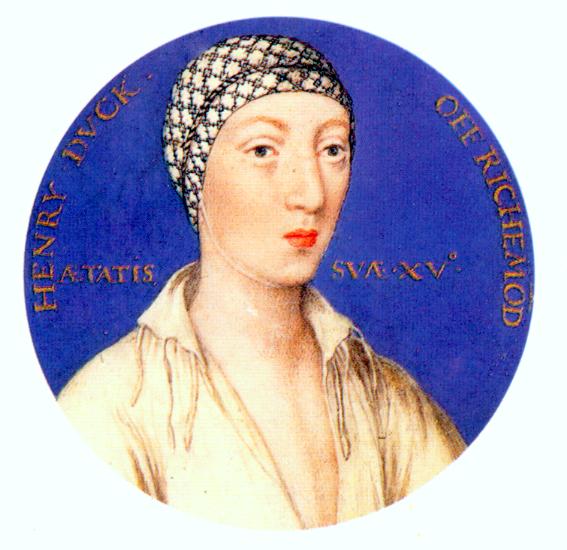
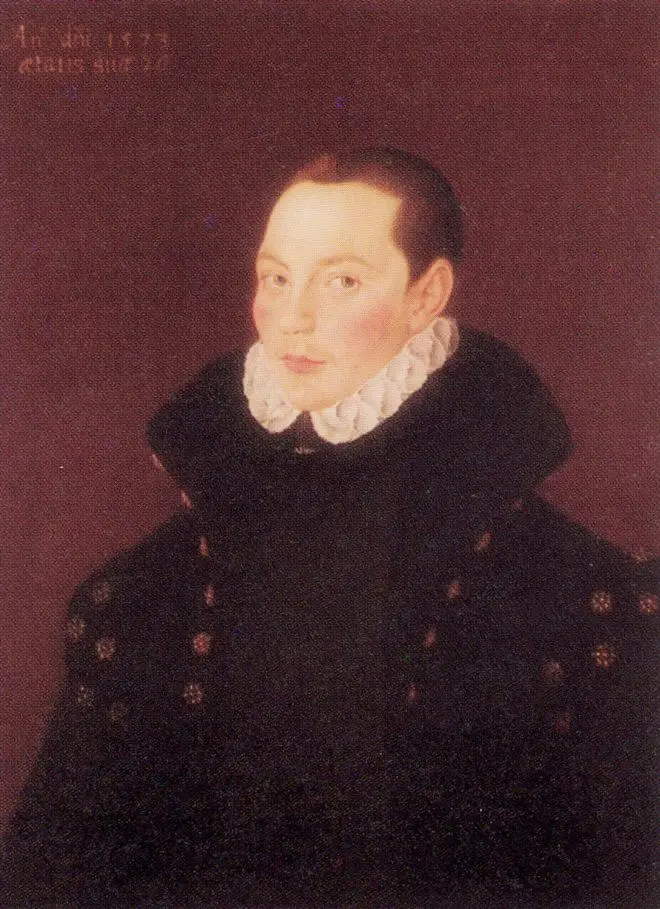
Leave a Reply